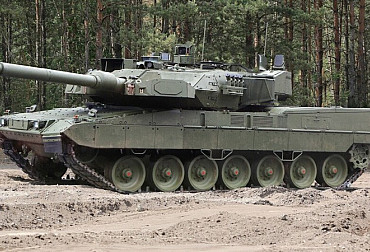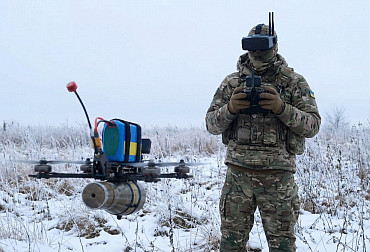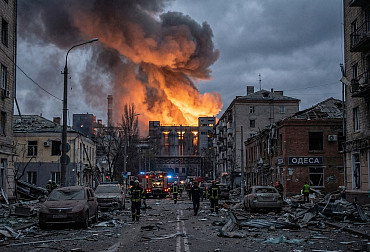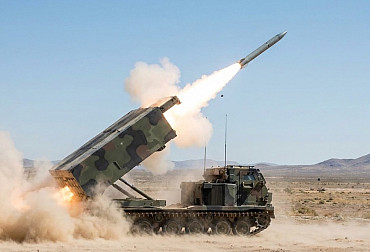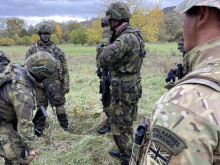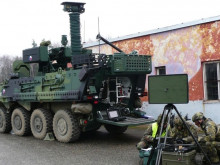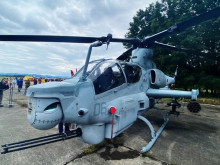Military training for students: Experiences, lessons, and friendships
Four weeks during which they swapped their sneakers for combat boots and their holiday relaxation for military training. High school students from across the country have just completed the Voluntary Military Training (DVC) program, which offered them a unique experience—becoming part of the Czech Armed Forces for a time.
This was not a recruitment drive, and certainly not training for future soldiers. The aim was to show that the army is a modern employer that offers interesting and adventurous work and can bring values that are often forgotten today into the lives of young people: discipline, responsibility, courage, resilience, and cohesion.
Video: Voluntary military training 2025 at the 72nd Mechanized Battalion and 102nd Reconnaissance Battalion / CZ DEFENCE
Students received a cash reward of approximately CZK 33,000 for the training, which should be a secondary but certainly significant motivation. "At first glance, the money looks really good, but when you do the math, I could earn the same amount at the swimming pool selling ice cream for 150 crowns an hour. And I'd have my evenings free and the comfort of my mom's house,“ laughs Private Tadeáš. ”But here, I've hit rock bottom. Four weeks of non-stop work, no cell phone, and no chance to leave the barracks. But I've learned a lot, and I've really gotten into it, so much so that I'm seriously considering joining the army full-time one day."
During the training, participants underwent theoretical and practical preparation. In classrooms and on training grounds, they learned how to provide first aid, orient themselves in the terrain, master the basics of topography, tactics, survival in the wild, and even shooting handguns. They gradually transferred everything to a real-life environment in military training areas, where they experienced what it means to work in a team under pressure, overcome fatigue, hunger, and discomfort—and at the same time not give up.
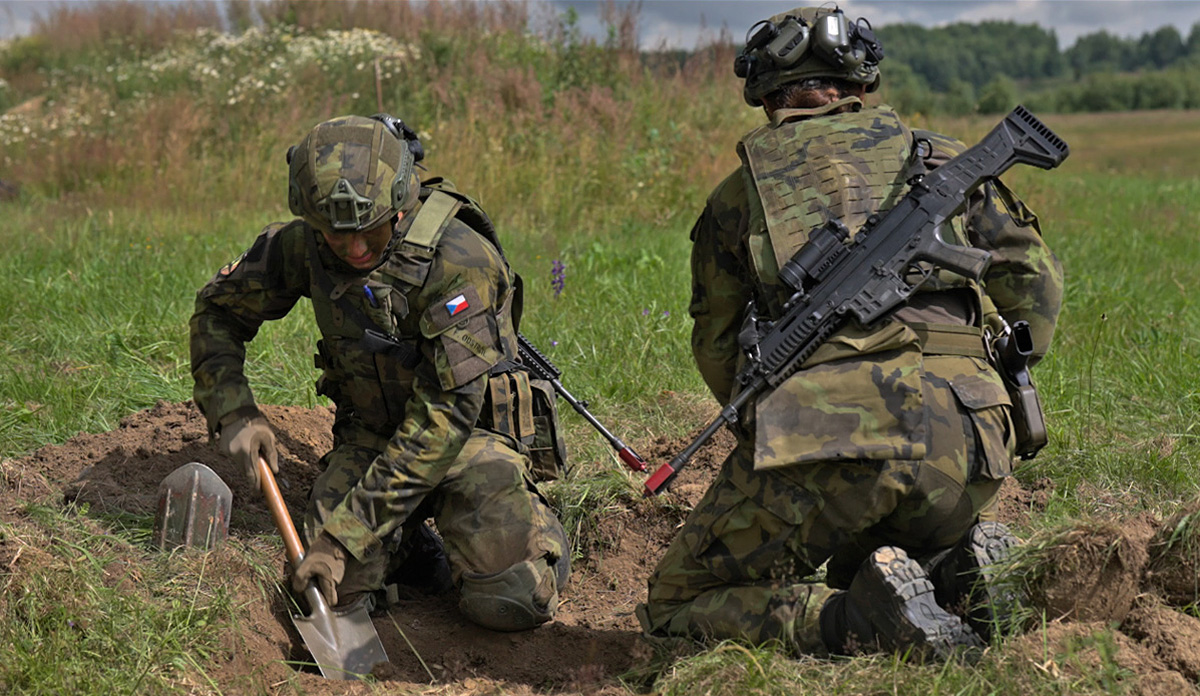
Most students stepped out of their comfort zone. They experienced moments when they hit rock bottom, but also moments of joy when they surpassed themselves. They found new friends, shared common challenges, and formed a team. And even though they met some of them for the first time in the barracks, at the end of the training they left as part of a perfectly coordinated unit.
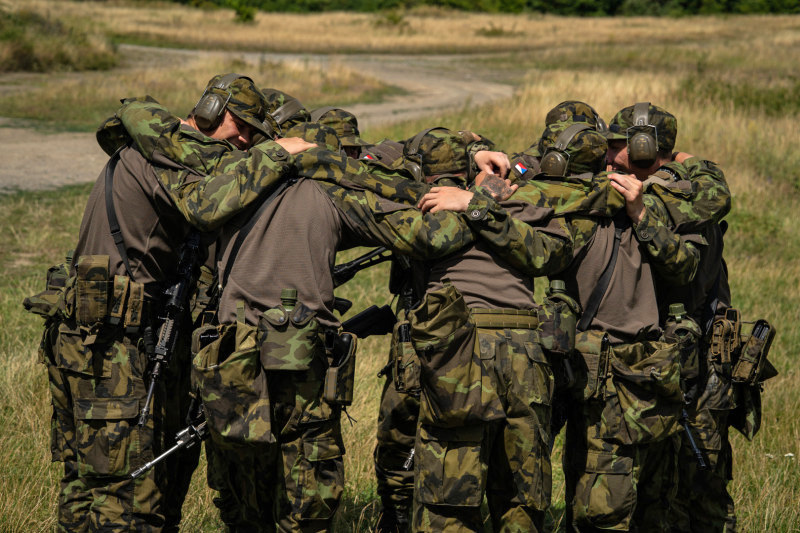
"At first, I was respectful. I didn't know what to expect, I was afraid I wouldn't be able to do it and would slow everyone else down. But in the end, it was fine—I had to work hard on myself, and my friends from the platoon helped me a lot. There was also a lot of theory, and I won't even mention how tired I was. I hit rock bottom, but it made me stronger. And sleeping under the stars? I wouldn't have done it before, but now? I plan to spend the rest of my vacation in a tent, or even without one," laughs Private Karolína.
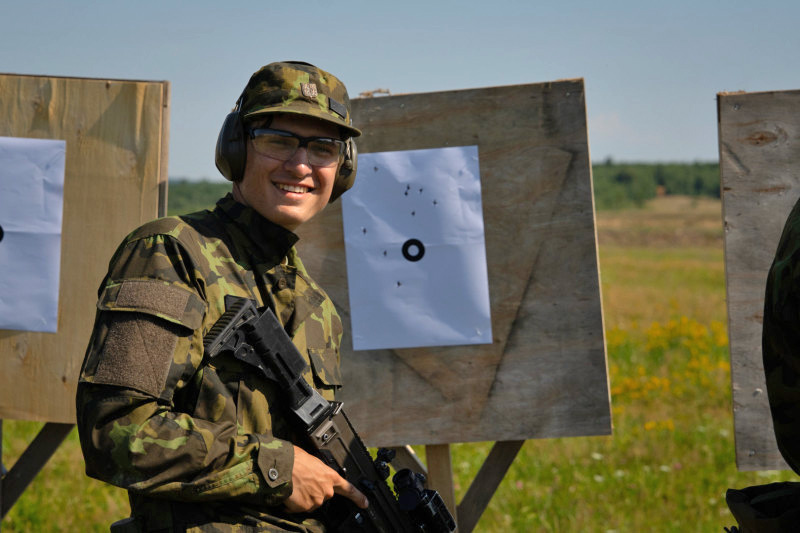
The courage they showed and their willingness to sacrifice part of their vacation to serve something greater than themselves are a clear sign that our society does not lack potential—we just need to awaken it sometimes.
And although most of them will probably never become professional soldiers, they will be able to use the experience they have gained in their everyday lives – whether in everyday situations or in times of crisis, when it is necessary to provide first aid, find their way around in unfamiliar terrain, or apply basic survival skills in the wild.
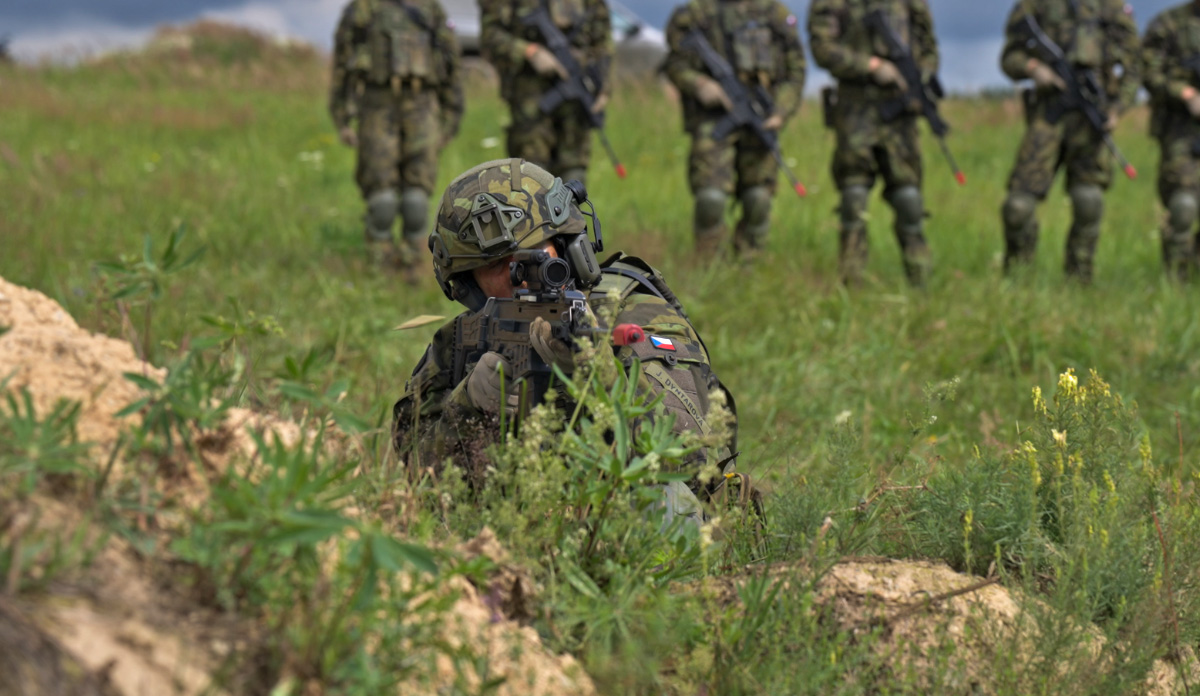
Voluntary military training offered them an adventure they will remember for the rest of their lives. Not only because of wearing camouflage, shooting, or marching with full gear, but because of a new perspective on the world, society, and themselves. They volunteered, they did it—and now they are stronger, more resilient, and more confident.
This year, voluntary military training for high school students took place at a total of eight training sites across the Czech Republic. One of the training sites was the Training Command – Military Academy in Vyškov, so we asked Lieutenant Colonel Tomáš Vašíček, who was in charge of the training, the following questions:
Compared to other units where DVC took place, you had several times more trainees. Was that a challenge for you in any way? Were there any complications?
In Vyškov, we are used to handling large numbers of trainees – it is our specialization. We are the gateway to the army and have the infrastructure, experience, and know-how for the entire training process from A to Z. The biggest challenge this time was that we only entered the training of high school students when the capacities of other units were insufficient, and it was necessary to react quickly. The DVC deadline fell right between regular basic training courses, so the organization had to be taken over by a different department than the one normally responsible for this training. In addition, we requested reinforcements from other units of the Czech Armed Forces – selected soldiers arrived, whom we quickly trained and involved as assistant instructors. With their help, we managed to complete the task, and some are even considering joining us permanently.
The training was widely publicized and did not take the same form everywhere. In some places, it was more of an “experience.” Did the trainers themselves talk to you about this?
Yes, the students mentioned it occasionally, but only in passing. It should be emphasized that the training itself is designed to be the same everywhere—upon completion, participants received the basic training required for entry into the army. This allows them to continue seamlessly after entering service.
Of course, some days – typically weekends – were devoted to demonstrations of the capabilities and equipment of the Czech Armed Forces, so there was also room for experiential elements. These varied from unit to unit: artillerymen demonstrated cannons, paratroopers showcased modern weapon systems, and helicopter pilots demonstrated their helicopters. And that's perfectly fine.
We deliberately included activities that promote motivation, teamwork, and determination to overcome obstacles. The students went through the Warrior's Trail, conquered a water obstacle, and experienced a unique moment—the feeling of an infantry fighting vehicle driving over them in a trench. These experiences left a strong impression on them and strengthened their relationship with the army.











